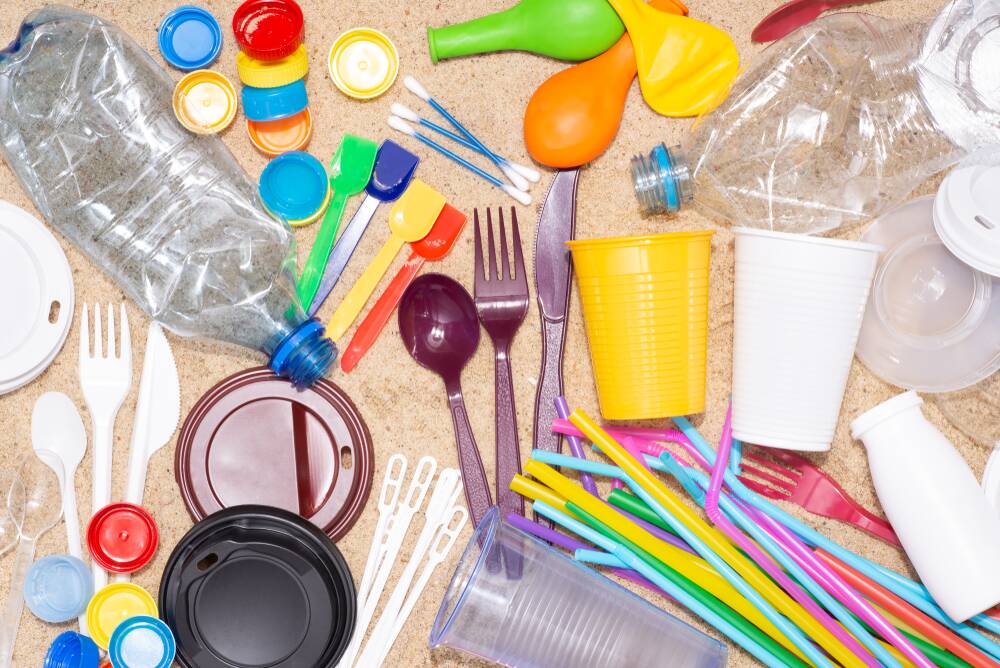The positive shift away from single-use plastics

This is branded content.
Nowadays, there are, unfortunately, several plastic packaging items that are used only once before being discarded.
Most media reports refer to plastic as a 'single use' material as although some plastics can be recycled, in many cases plastic cannot be recycled, or it ends up in landfill despite the fact that it may have been possible to recycle if it were disposed of properly.
From an environmental standpoint, it is time to move away from single-use plastics and start focusing on using more natural, compostable and less harmful materials instead.
Companies are becoming increasingly concerned about finding plastic alternatives because of the problems that plastic is causing in the environment, consumer concerns, and an increasingly complex regulatory environment.
Even seemingly simple things, such as eco-friendly laundry detergent sheets, can make a huge difference in the war against plastics and other non-biodegradable materials used in everyday products.
Products made of environmentally friendly materials will help make the world a healthier place for us to live in and help us preserve the environment for generations to come.
Continue reading to learn more about the positive shift away from single-use plastics and the importance of embracing more eco-friendly materials.
Plastic damages the planet
It is not unusual for plastics to go to waste after only one use. Plastic bottles, bottle caps, food wrappers, grocery bags, lids, straws, and takeout containers are among the most common single-use plastic items.
Plastic waste amounts to hundreds of millions of tons of waste thrown out across the globe each year.
While plastic is often thought of as a recyclable material, in practice, plastic is rarely recycled, and a huge portion of it ends up in landfills, incinerators and in our oceans, causing untold damage to the health of the planet.
Single-use plastics are a huge problem
There are trillions of plastic bags used by consumers every year in all corners of the globe. Although single-use plastics have been immensely successful commercially, they are certainly not environmentally friendly.
Plastic products are often misused and can be very difficult to recycle. Plastic bags and styrofoam are viewed as the most harmful items made from single-use plastics.
The most dangerous of these items are plastic bags since they stick to trees and fences, float downstream and are often ingested by wildlife.
What's more, we are not reliant on single-use plastic bags, and we can easily replace these items with hard-wearing, long-lasting alternatives made from naturally occurring materials that can be disposed of more responsibly.
The environmental impact of plastic waste
The environment will suffer if waste and consumption management do not improve. By 2050, landfills and the environment will collect over 12 million metric tons of plastic waste.
Ninety per cent of seabirds are expected to eat plastic by 2050. There is an alarming rate of pollution caused by single-use plastics, and natural disasters are accelerating due to our failure to address this issue.
Pollution will result in massive economic losses for the tourism, fishing, and shipping industries. A further disadvantage of lightweight foamed plastics is that they cannot be recycled locally, so transportation costs to recycling plants will be higher.
Plastic waste will lead to enormous costs in the future when it has to be removed from the environment, but if we act now, we can make a real difference for future generations.
Taking positive steps to reduce the use of single-use plastics
If we hope to protect the environment, action needs to be taken now. Educating consumers about the danger of single-use plastics is the first step towards reducing their use.
Plastics have toxic effects on the environment, so reducing their use in our daily lives is the first step to making a positive impact on the planet.
The general public can be educated about single-use plastic through campaigns and pressure from governments to reduce or completely eliminate the use of single-use plastics moving forward.
Educating people as to how they can make changes in their lives for the better and highlight economic incentives for businesses will continue to make a huge difference in dealing with this problem.
Making a difference is within your reach: Knowledge is power
The majority of plastics are not reusable, despite being made of materials that last forever. Annually, the majority of plastic is produced for single-use packaging, and although steps have already been made to change this, there is still a long way to go.
Recycling is like mopping the floor and still running the faucet when it comes to plastic. To ensure a brighter future for our planet, we must stop using single-use plastic, turn off the tap, and ensure a healthy, vibrant planet for the next generation to enjoy.


